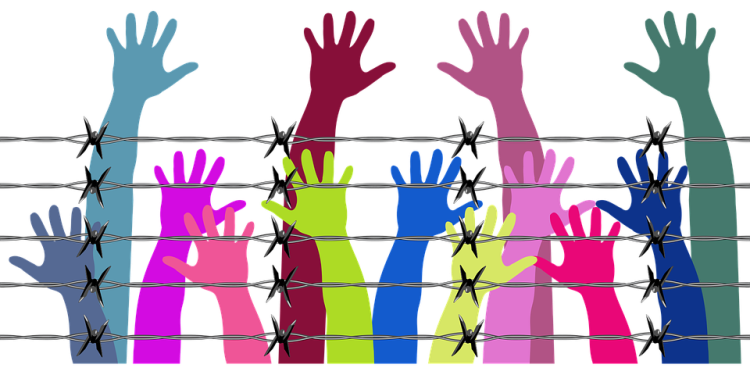Human rights and governance challenges exacerbated by COVID-19 pandemic: Indian-American lawmaker
Testifying before the sub-committee, National Democratic Institute president Derek Mitchell said China's growing power and influence is a critical enabler for the spread of illiberal values throughout the region. China's policies consistently support the maintenance of autocratic systems in neighbouring countries.

- Country:
- United States
The coronavirus pandemic has exacerbated human rights and governance challenges, a senior Indian-American Congressman has said, while noting that the public health measures enacted by countries to combat the spread of COVID-19 have also limit civil liberties and individual rights. Dr Ami Bera, the senior-most Indian-American lawmaker in the US House of Representatives, said human rights and democratic governance have traditionally been core to the conduct of the American Foreign Policy.
"In the current COVID-19 global pandemic, we've seen human rights and governance challenges been exacerbated by the pandemic. Nations have enacted public health measures that may be designed to limit the spread of COVID-19, but also, intentionally or unintentionally, limit civil liberties and individual rights,” he said recently during a hearing on human rights in Asia. Bera -- who is also the Chair of the House Foreign Affairs Subcommittee on Asia, the Pacific and Non-proliferation -- had held the hearing early this week. China was one of the main issues of discussion.
Bera, who was chairing the hearing, said the US has its own faults and shortcomings when it comes to living up to its own values -- from disparate treatment of communities of colour and immigrants to institutions increasingly influenced more by ideology than the rule of law. "That said, we welcome criticism and feedback, just as our partners around the world and in the region should also recognise and welcome our feedback and criticism," he said. "This is part of what being a mature democracy is," Bera said, adding that he has a genuine interest in the developing democracies in the region and had the chance to visit some emerging democracies like Malaysia, Sri Lanka and Nepal.
Ranking member Ted Yoho said while countries like Myanmar and North Korea have received international condemnation, sanctions and punishment for their human rights abuses, China has remained relatively unscathed. "China, one of the world's worst abusers of human rights, has escaped the kind of condemnation experienced by its bad neighbours for decades despite being a repeat offender for populations of millions," he said. Testifying before the sub-committee, National Democratic Institute president Derek Mitchell said China's growing power and influence is a critical enabler for the spread of illiberal values throughout the region.
China's policies consistently support the maintenance of autocratic systems in neighbouring countries. Its testing and deployment of an Orwellian state surveillance system to ruthlessly control the Uyghur population in Xinjian is not staying in Xinjian, he said. The Chinese Communist Party (CCP) fears free and open debate at home, but then seeks to exploit open societies to make its deceptive case abroad, Mitchell told the lawmakers.
“But through its handling on Hong Kong, Tibet, the Uyghurs, Taiwan, and other foreign and domestic matters, the world can now see clearly the emptiness and coercive violence at the core of the CCP system. The CCP's need for a surveillance state may demonstrate their system's weakness, but that makes it no less dangerous to the health and wellbeing of others,” he said. Dr Daniel Twining, president of the International Republican Institute, said China is home to four-fifths of those still living under authoritarianism globally. Inside the country, the communist party brutally crushes dissent and runs a ruthless surveillance state, he said.
“The CCP is carrying out a campaign of forced detention and population control in Xinjiang and has unilaterally revoked political freedoms in Hong Kong, the richest part of China where citizens don't accept the party's offer of prosperity without rights,” Twining said. “China's leaders want to make the world safe for autocracy. Across Asia, Beijing bolsters the fortunes of illiberal actors and provides tools and talking points to justify repression. Manipulation of the information space in many countries weakens institutions like free media and civil society that otherwise would expose the dangers of China's opaque deal making and corrupt practices,” he said.
Twining said Chinese assistance too often entraps countries in debt or corrupts their elites. By contrast, the US support for accountability transparency and democratic decision-making helps ensure we have capable partners who can make their own choices, including in foreign policy. “China pursues its interests not only be projecting force, but very much through sharp power instruments of influence -- information operations, united front tactics, exploitive surveillance technologies, and forms of political corruption and economic capture. Bolstering democratic resiliency in Asia against malign foreign influence is a US national security interest," he said.
(This story has not been edited by Devdiscourse staff and is auto-generated from a syndicated feed.)
ALSO READ
Senior US diplomat links AUKUS submarine pact to Taiwan
Taiwan earthquake injuries climb above 1,000, hotel workers still missing
Taiwan earthquake injuries top 1,000, missing hotel workers found
Taiwan earthquake injuries top 1,000, hotel workers still missing
Rescuers search for people out of contact in Taiwan after strong earthquake










